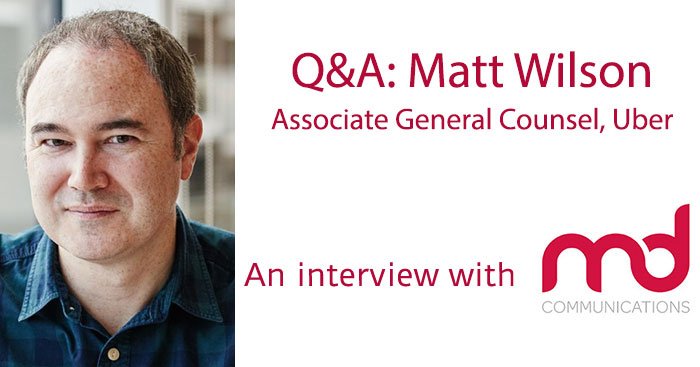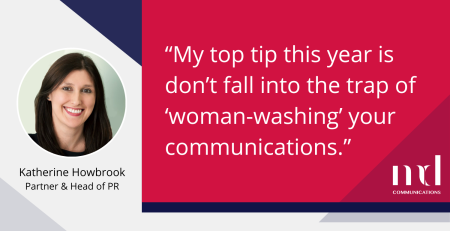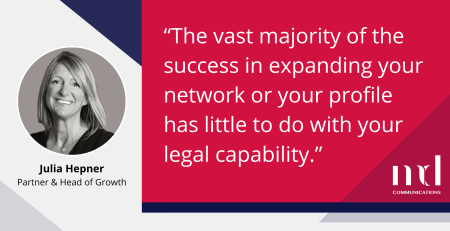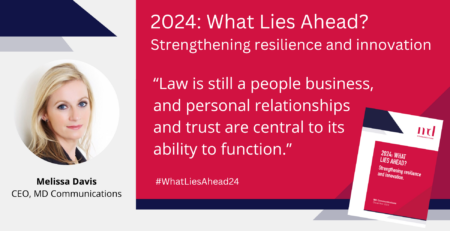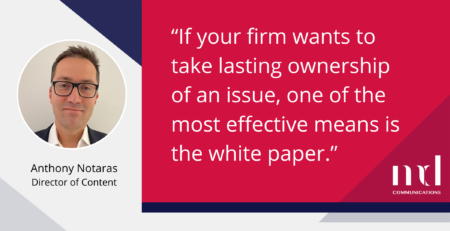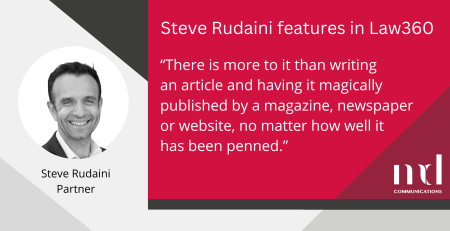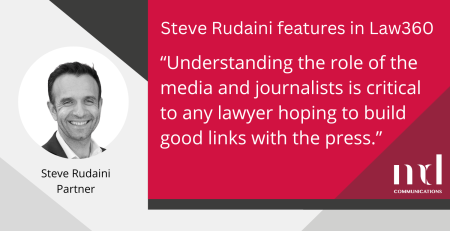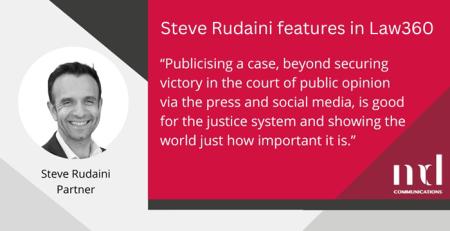In our latest Thought Leader interview, Matt Wilson, Associate GC at Uber, talks about the challenges of the role, relationships with external counsel, the importance of addressing mental health issues in the workplace and the role of legal directories in selecting counsel.
You’ve certainly built an impressive legal career within the TMT industry. What enticed you to an in-house role at Uber and how did it differ to your previous experiences?
Uber were recruiting for their first legal role in the UK; it seemed too good an opportunity to turn down.
I was at Telefonica at the time and it was a huge change moving from this big public Spanish company to a young, hard-charging American start-up. One major difference was the sheer pace of the business at Uber compared to Telefonica – and getting used to that. Having to make really quick decisions that were legally robust. We have made a lot of changes over the past few years but there has always been a real sense of mission and there still is today.
All companies talk about missions but Uber is one where everyone that works here is truly bought into what the company is trying to achieve. It provides real opportunity for people, whether they’re in London, San Francisco or Lagos, to make money for themselves and on their own terms. That’s an incredibly powerful thing. I had never worked anywhere before with a group of so many bright – and nice – people that that are so bought into a collective mission. It’s hugely energising and – most of the time – fun.
How have your relationships with external counsel evolved over the years? Have your expectations changed or have firms adapted to meeting the standards of a massive technology corporate like Uber?
External counsel today – at least the good ones – have become more willing to give a view on things, and quickly. Firms are getting increasingly used to having commercially orientated conversations. It’s not just about putting together a twenty-page memo with lots of caveats and pressing send; we now get strategic insight from outside counsel – especially those that we use in jurisdictions where we’re not on the ground. In many ways, the best external counsel have become more of an extension of our team, putting themselves in our shoes – even if that can be a bit uncomfortable. They also got used to working at our pace and adopting the tech solutions that we use internally. Those that cannot get used to the speed at which we work or the way in which we want our advice generally get swapped out very quickly.
How has your role changed within the company?
It’s definitely not strictly legal anymore. My role as Associate General Counsel is now more of a risk manager than only giving straight-up legal advice every day. The team and I have to look at risks posed to the business from a variety of different perspectives whether that is economics, politics, competition, or regulation. It’s necessary to weigh all that up and then develop strategies based together with senior leadership to figure out the right thing to do for our business, whether that’s entering new markets, developing new products, or savvy acquisitions. We certainly don’t feel as though we give our legal advice and run away. Being in the room and owning the decisions together with the rest of the leadership is part of the fun.
There must be a lot of pressure on the legal team though, given how much controversy has surrounded Uber over the last couple of years…
When I first came into my current role at Uber, the company was in crisis mode, whether it was in San Francisco or Europe. The company had a whole variety of issues that it had to deal with. We had to figure out how to work through those problems in the short term while at the same time consider how to turn the company around in the long term, looking at what the company needed to achieve in terms of its risk profile and corporate culture.
There was also a thorny point where we had to consider whether to keep the business open in certain jurisdictions. However, by working with the relevant authorities rather than against them we managed to build trust, find ways to stabilise the basis for our operations – whether that was changing the way worked, changing laws and regulations or agreeing MoUs or contracts with authorities. That positive change enabled us to build stronger foundations on which to grow the business. Working alongside different internal teams like Ops, Policy and Comms to achieve those aims got us to a better place and has been incredibly satisfying.
There was much talk at the IBA in Seoul about the use of technology to bring about change in business. How has technology enhanced your ability to deliver legal solutions?
That process of change in the legal industry is still taking place. At a very simplistic level, you have more automation for things like billing, contract management, and document management. With tech advances, we can work in real time with the rest of the business as opposed to using word docs and sending drafts back and forth. But the legal industry still a long way to go in terms of embracing and catching up with tech advances. The legal tech world is still very fragmented.
What are your thoughts on corporate responsibility towards the mental health of staff?
The first thing to say is… frankly, this is a topic that is very close to my heart for a few reasons. Corporates in general are getting better at talking about and addressing mental health issues. It starts with building relationships and trust with your team and making sure you proactively create the environment where people say they trust one another and they can share their vulnerabilities, their hopes and fears, and we can look out for each other.
We do this in a number of ways; whenever someone new joins the team, I always say to them there is no such thing as a stupid question. You have to lean on other people in the team. We make sure that all managers and team members try and be as open as possible with each other so everyone knows they have a number of people to talk to about any issues.
We also do a variety of training sessions with outside providers, including one called Kintla. It is all about how to effectively manage stress – at work and home. That starts with being able to identify unhealthy stress that puts you in a “red zone” and then developing the individual tools to help get each other back to the productive, healthy “green zone” as quickly as possible. It’s meant that we’ve all got to know each other better to, and have a better understanding of what makes each other tick and what matters most to each of us. We also created team charters – where people identify what matters most to them and make sure everyone else is aware. For me, its getting home at a reasonable hour reading bedtime stories to my daughters as well as getting enough exercise. We make sure everyone identifies what matters to them so that when meetings are scheduled we’re cognisant of what’s important to each other and try not to impinge on that. As a company, Uber has certainly gotten better at addressing mental health but frankly it does start with teams and with each of us looking out for each other as fellow human beings.
The pressure to address the issue of gender inequality in big business – as well as confronting sexual harassment in the workplace – has also become a hot topic especially since the “metoo” movement… how do you insist on changing the status quo?
It’s similar to the mental health question. We need everyone to feel comfortable that they can raise any issue they encounter at work, whether its sexual harassment, bullying, or discrimination in relation to gender, race, or religion. Everyone in our team needs to know it will be taken seriously and properly addressed.
Diversity is unbelievably important and is not just for optics. It influences the way we make decisions. It is vital to me and the team that we are reflective of today’s culture and our user base. I’m really proud of that.
We made the decision to insist on diversity of thought. In a team of 54 people, we have 19 different nationalities, based in 14 different countries. We also have an equal gender split; all of that has been very deliberate and something we are very mindful of.
But there’s still a lot of work to do. When the legal team tendered for a material piece of work a few months ago, one of the core criteria stipulated that firms would ensure they put forward a diverse team of lawyers. Out of the firms that responded, there was one which did not present a diverse team at all. They basically didn’t follow our requirements and we excluded them. When we say diversity matters, we mean it. Maybe they underestimated how much weight that carries. When you have three Magic Circle or White Shoe-level firms that are ranked top tier in the area of advice you seek, something like diversity can be a true differentiator.
You and your team have received much praise for your work by media publications in recent years. Do you think this kind of recognition is useful for in-house lawyers in building their career profile?
I’m incredibly proud of the brilliant Legal team we have here at Uber. While our daily work is focused on being a strong partner to the business and helping Uber grow, it is always nice for the team’s hard work to be recognised by the industry and I do find “powerlists” and other publications enormously helpful in terms of getting our profile out there and they are a reflection of the work the team does every day.
What about legal directories in terms of your perception of external counsel? Do they have much impact on your decision making?
The legal directories are really useful. I tend to use them as a rough guide for understanding firms we should be speaking to in any given area. They serve as both an entry point and a comfort to in-house lawyers, particularly if it’s a question of who I should speak to. Of course, we have our usual roster of external advisers but if a firm comes to my attention that is not on the list, those directories can be a great comparison tool. That is hugely valuable and can save so much time.
How could the legal directories improve? Do you interact directly with them? Do you take part in interviews with the researchers – if so how do you find them?
My main comment on ways of improving the directories is that it would be great to find a way of getting more input from industry/clients on the categories that would be useful, rather than just taking law firm structures which don’t always reflect the composite advice that industry needs. In the same vein, being able to select three disciplines and then seeing the best firm in aggregate would be very useful.
What do you look for in your external legal adviser and what would you advise those wanting to be instructed by you to do to ensure it happens?
In an ideal world, the relationship with our external advisers would always feel like a natural extension of your team. I’m happy to be able to say that we have a variety of external relationships that feel like that, where you don’t think twice about picking up the phone and using them as a sounding board. I would also strongly recommend that outside counsel don’t ignore their clients’ agendas on things like CSR, diversity and inclusion and environmental issues. All of these areas are extremely important and shouldn’t just be lip service.
What has put you off instructing firms in the past?
Getting sold to too hard! I fully recognise that it’s difficult for firms to get introductions to clients they may want to build a relationship with but, at the same time, being thoughtful about what may be important to the client and how the firm may be able to add real value is key. Sometimes, that synergy just isn’t there and that’s life. It’s better not to try and force it as it can end up wasting people’s time, which can end the relationship before it’s even started!
Matt Wilson contributed to our recent white paper: ‘Demanding answers: How general counsel are changing legal services’.


